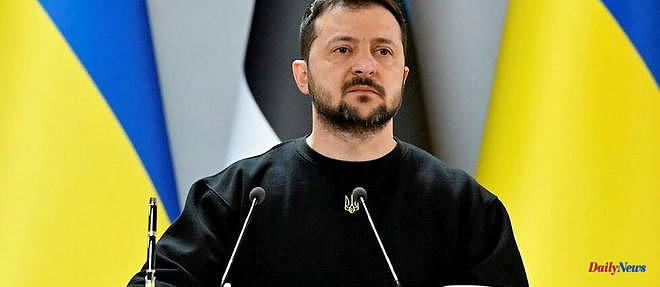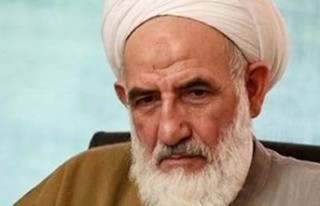This is a great first since the start of the Russian invasion on February 24, 2022. This Wednesday, April 26, Ukrainian President Volodymyr Zelensky and his Chinese counterpart, Xi Jinping, exchanged during a " long and meaningful” interview, according to the former.
At the end of it, Volodymyr Zelensky said he hoped for "a powerful thrust in the development of bilateral relations" between Kyiv and Beijing. The conversation between the two heads of state lasted "almost an hour", said Serguii Nykyforov, his spokesman.
I had a long and meaningful phone call with ���� President Xi Jinping. I believe that this call, as well as the appointment of Ukraine's ambassador to China, will give a powerful impetus to the development of our bilateral relations.
Very soon after the end of their conversation, Volodymyr Zelensky announced that he had appointed Pavlo Riabikin, 57, former Minister of Strategic Industries, Ambassador to China, post vacant since February 2021.
Volodymyr Zelensky had been asking for this discussion for months, in the hope of making the Chinese position more favorable to kyiv with regard to the Russian invasion. In February, he said it was "necessary" to "work" with China to work towards a resolution of the conflict. Then, in March, he reiterated his wish to dialogue with his Chinese counterpart on this subject and said he was "expecting a response" from him. But according to experts, Beijing has always responded negatively to his proposals. Until today, therefore, this call being once again at the Ukrainian initiative.
For his part, the Chinese president assured that "China has always been on the side of peace" and called for "negotiation", said state television CCTV. "Dialogue and negotiation" are the "only way out" of the conflict with Russia, the leader further assured, according to CCTV.
Russia was quick to respond to this call. The Foreign Ministry accused Ukraine and their Western backers of "undermining peace initiatives" by refusing dialogue. Moscow also said it "takes note" of China's willingness to "strive to establish a negotiation process" between Russia and Ukraine, but criticized Kiev for "rejecting any sensible initiative aimed at a political and diplomatic settlement of the crisis".
According to the Russian ministry, Ukraine issued "ultimatums with knowingly unrealistic demands" and "suddenly rejected" draft peace agreements in the spring of 2022, following the start of Russian military intervention.
Volodymyr Zelensky also accused Russia of issuing "ultimatums" and said he did not want to negotiate with Vladimir Putin, while insisting on the return of all territories occupied by the Russian army, including Crimea annexed in 2014 "Any call for peace can therefore hardly be adequately perceived by puppets controlled from Washington," the Russian ministry also slammed.
Officially, China calls itself neutral, but Chinese President Xi Jinping has never condemned the Russian invasion or even spoken on the phone, so far, with President Zelensky. The country released a 12-point document in February outlining its position on the conflict in Ukraine. The initiative, sometimes seen as a peace plan, notably urges Moscow and kyiv to hold talks.
On the other hand, China has greatly increased its political and economic cooperation with its Russian neighbor. At the end of March, Xi Jinping even went to Moscow to reaffirm his partnership with Vladimir Putin, a meeting that looked like an anti-Western front.
During a visit to China in early April, French head of state Emmanuel Macron urged Xi Jinping to "bring Russia to its senses" vis-à-vis Ukraine and urged him not to deliver. arms in Moscow. This Wednesday, the Elysee Palace again encouraged "any dialogue" likely to "contribute to a resolution of the conflict" in Ukraine "in accordance with the fundamental interests" of Kiev and "international law".












